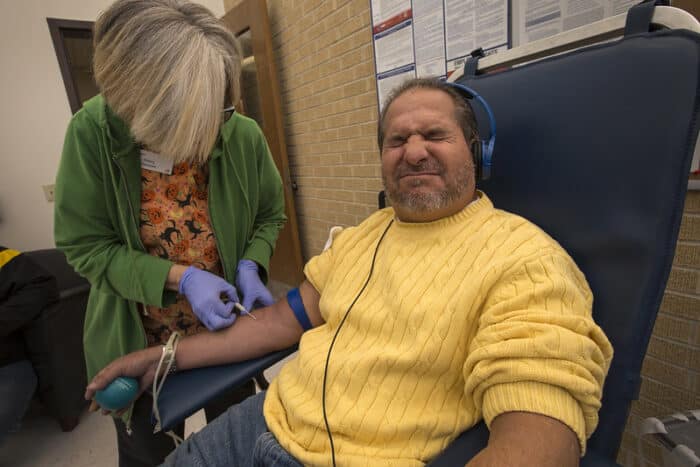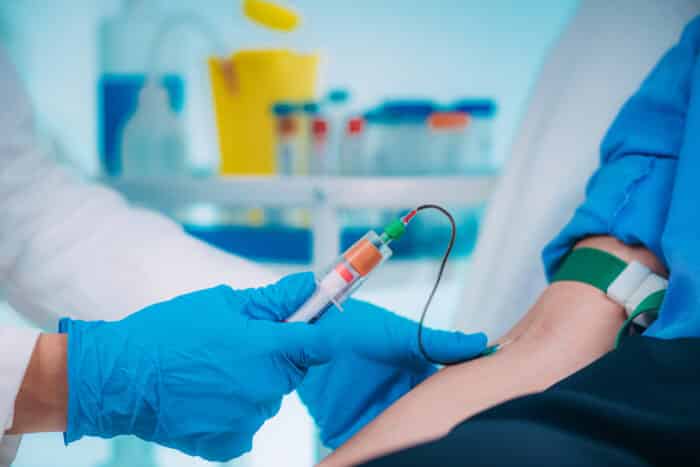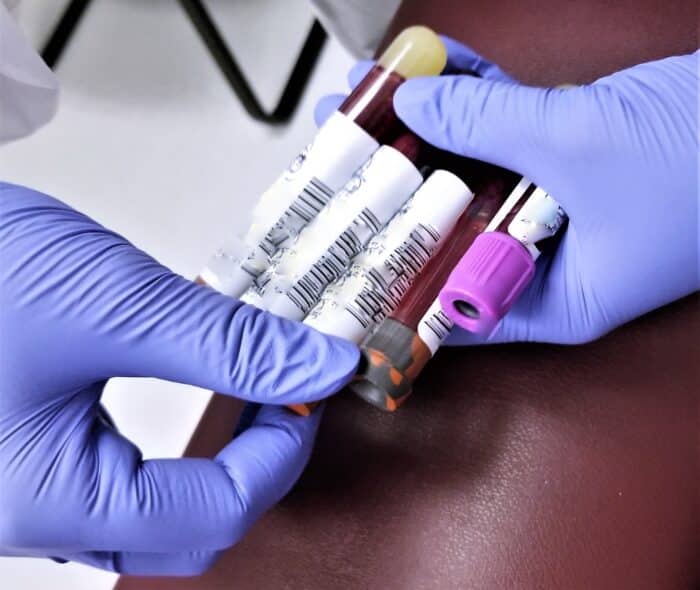Do you want to become a successful phlebotomist?
But you are unsure what it takes to become one?
Having come across the term ‘phlebotomy certification’, are you also confused if it is really necessary?
We understand the dilemma, and we’re here to help give you an insight into the rewarding career of phlebotomy and whether you need to get certified or not.
The #1 thing that employers look for while hiring phlebotomists is whether they are certified, as owning a certification shows that you are capable of handling the day-to-day tasks of a phlebotomist efficiently, which is mainly drawing blood.
In this article, we will explore more about what a certified phlebotomist is, the different types of phlebotomy certifications, and some common questions you might have about the career.
Let’s dive in.
What is a Certified Phlebotomist?
A certified phlebotomist is a healthcare professional who has undergone specialized training and has earned a certification in phlebotomy, that is, drawing blood for sampling and diagnosis.
But how do you become a certified phlebotomist?
By applying for certification after you complete your phlebotomist training program.
To become a certified phlebotomist, you will need to enroll in educational training programs. These programs are generally available at community colleges, vocational schools, or online.
After finishing the training, aspiring phlebotomists usually have to pass a certification exam. This test is offered by different organizations like the National Healthcareer Association (NHA), the American Society for Clinical Pathology (ASCP), and the American Medical Technologists (AMT).
Getting certified as a phlebotomist is considered important because it shows that phlebotomists are skilled and serious about their job. It also helps them find better job opportunities, higher pay, and more chances to move up in their careers.
Read: Online Phlebotomist Classes
Different Types of Phlebotomy Certifications
Now that you know what a certified phlebotomist is, the next thing on your mind must be which certification to go for.
This can be especially confusing since there are a lot of phlebotomy certifications out there, and choosing one of them can be stressful.
See more: What is a Phlebotomist
To help you with that, we have listed out three of the most common and legitimate certifications by nationally-recognized organizations that you can choose from:
Certified Phlebotomy Technician (CPT) – NHA:
Cost: $117
Renewal Period: Every two years
Offered by the National Healthcareer Association (NHA), the CPT certification is one of the most widely recognized credentials for phlebotomists. It demonstrates proficiency in venipuncture and other phlebotomy procedures.
Phlebotomy Technician (PBT) – ASCP:
Cost: $135
Renewal Period: 3 years
The American Society for Clinical Pathology (ASCP) offers the PBT certification. This credential validates a phlebotomist’s skills in specimen collection, processing, and handling.
See more: Phlebotomist Skills
Registered Phlebotomy Technician (RPT) – AMT:
Cost: $125
Renewal Period: Continuing education every 3 years and an annual fee
Provided by the American Medical Technologists (AMT), the RPT certification is for phlebotomists who have completed the required education and training and passed the certification exam.
Is Certification Really Required?
This is a common dilemma aspiring phlebotomists usually face, whether getting certified is really necessary.
Even though certification is not required in many states, employers still highly prefer candidates who are certified over uncertified ones.
Getting certified as a phlebotomist tells employers that you are skilled, professional, and dedicated to your job. It means you’ve met the golden standards and passed a certification exam.
Employers also prefer certified phlebotomists because they know you have the right abilities for the job. Certification can also lead to better job opportunities, higher pay, and chances to move up in your career.

Do You Want To Become a Phlebotomist? Check Out Free Phlebotomist Masterclass!
In our masterclass you learn:
- How to be a Phlebotomist faster…in just 2 months!
- Avoid student debt & driving to classes
- #1 thing employers want from Phlebotomists
- How to stand-apart & get a university certificate for a strong resume
How to Become a Certified Phlebotomist
The process of becoming a certified phlebotomist might sound intimidating at first since you have so many options for certifications and training programs to choose from.
But don’t worry, we’re here to make it simpler for you.
Here are four easy steps you can take to become a successful certified phlebotomist and start your career soon:
Obtain a high school diploma or a GED:
The first step is obtaining a high school diploma or a General Education Development (GED) certificate, as it is the minimum requirement for becoming a phlebotomist.
Choose the right training program and enroll:
Enroll in a phlebotomy training program that offers both theoretical knowledge and practical hands-on training. The right program can significantly contribute to your success as a phlebotomist.
Choosing an online training program is therefore highly recommended due to the several advantages it offers, such as:
- Highly affordable as opposed to other alternatives
- Complete your training much faster, in as little as 2 to 4 months
- Allows flexibility, wherein you get to learn from anywhere and at any time
- Some offer externship opportunities once you finish your course
Read more: Day in the Life of a Phlebotomist
Gain Practical Experience:
Gain practical experience through externships or internships, which are often available through some online training programs upon course completion.
This practical training allows you to regularly practice venipunctures and blood draws, preparing you for the job.
Get Certified as a Phlebotomist:
While not mandatory in most states, obtaining certification as a phlebotomist is highly recommended as employers prefer certified candidates.
You can get certified through reputable organizations like the American Medical Technologists (AMT), the American Society for Clinical Pathology (ASCP), or the National Healthcareer Association (NHA). Each organization offers unique certification exams, so review their options to find the best fit for you.
Apply for Jobs:
After becoming certified, you can start applying for phlebotomy jobs at hospitals, clinics, laboratories, or other healthcare settings.
Also see: How to Become a Phlebotomist
What is the Difference Between a Phlebotomy Certificate and Certification?
Even though they sound similar, and are often used interchangeably, a phlebotomy certificate and phlebotomy certification are two distinct aspects of phlebotomy training and qualifications.
A phlebotomy certificate is an educational credential that is given to you when you successfully complete a phlebotomy training program. This certificate is provided by the training institution and serves as evidence that you have completed the required coursework and practical training in phlebotomy.
On the other hand, a phlebotomy certification is an independent credential obtained by passing a certification exam conducted by a nationally recognized certifying organization.
Organizations such as the American Society for Clinical Pathology (ASCP), the American Medical Technologists (AMT), and the National Healthcareer Association (NHA) offer these certification exams. If you clear these exams, it leads to becoming a certified phlebotomist, and the certifying organization issues a certificate to the individual.
Conclusion
Obtaining a phlebotomist certification is a valuable step towards a rewarding and fulfilling career in healthcare. It not only ensures that you have the necessary skills and knowledge to excel in your role but also opens up a world of opportunities for you.
Certification not only boosts your credibility but also increases your earning potential. So, if you’re considering a career as a phlebotomist, don’t hesitate to pursue certification – it’s the key to a bright and successful future in the medical field.
Related Resources:
- Traveling Phlebotomist
- How Long Does it Take to Become a Phlebotomist
- Phlebotomist Salary
- Phlebotomist Job Description
- Can A Phlebotomist Start IVs?
- Phlebotomist Duties
- What is the Difference Between a Licensed Phlebotomist and Certified Phlebotomist?
- Where Can a Phlebotomist Work?
- Phlebotomist Degree
- Phlebotomy Externship
- Mobile Phlebotomist
- How Long Does it Take to Get a Phlebotomy Certification?
- What are the Different Types of Phlebotomy Certifications?
- Phlebotomist Nurse
- Phlebotomist vs CNA
- Therapeutic Phlebotomy
- Certified Phlebotomy Technician
- Phlebotomist School
- EKG Phlebotomy Technician
- Phlebotomy Classes Cost
- Phlebotomy Interview Questions
- Phlebotomist Career
- 4-Week Phlebotomy Classes Online
- Venipuncture vs. Phlebotomy: Differences
Related Articles
-
How to Be Successful in College in 2022 – 7 Simple Tips to Succeed
-
How Do Scholarships Work? Read This First…Truth is Shocking
-
7 Best College Majors 2024: What Should I Major In?
-
How to Choose a College – 10 Things You Must Consider in 2024
-
Why Go to College? Top 13 Benefits for Adult Students in 2022
-
Top 5 Best Alternatives to Community College for 2024









